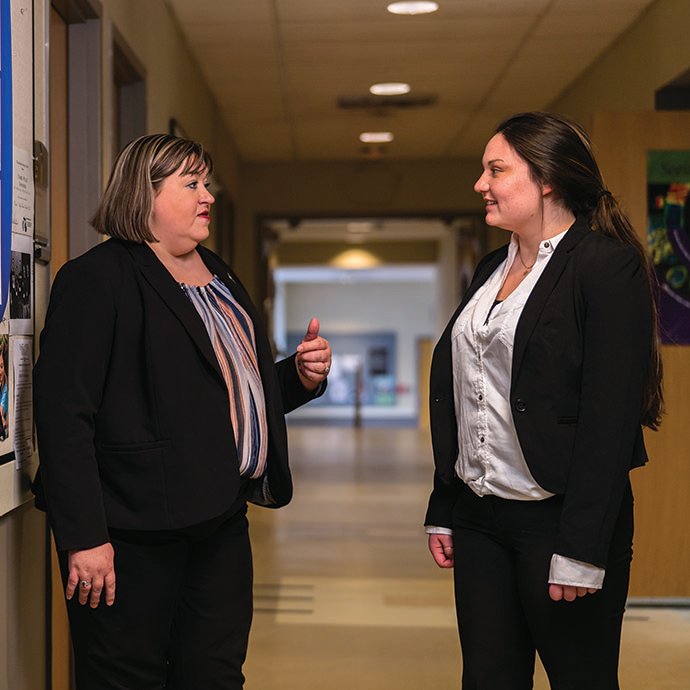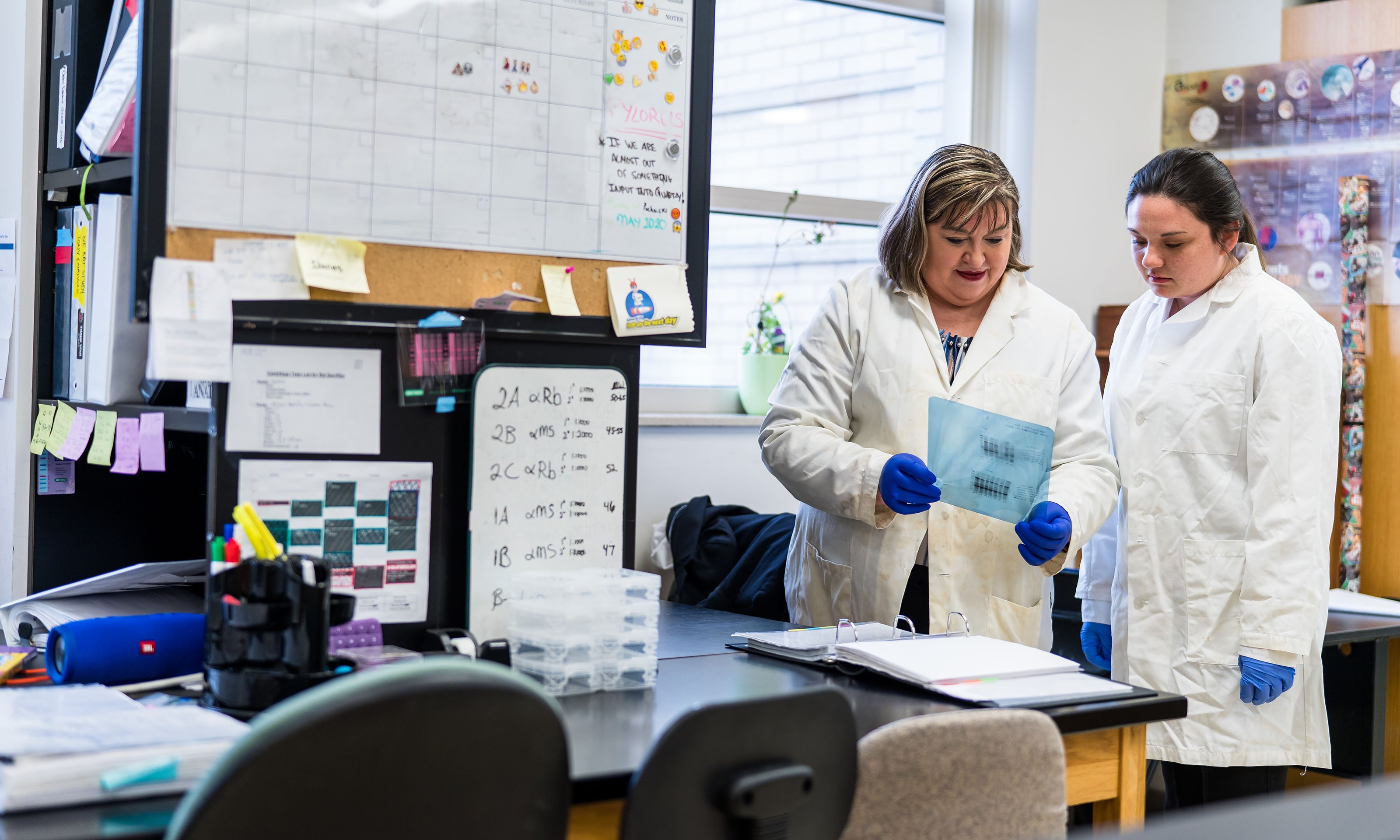- YouTube
- TikTok
Through guidance and collaboration in research, Oakland University (OU) faculty mentors and undergraduate students foster relationships that benefit both faculty and students.
“All collaborations have the potential to bring diverse perspectives to a problem,” says Amy Banes-Berceli, associate dean of OU’s College of Arts and Sciences. “Mentors benefit from the increased productivity and publications, while students build their resume, career skills and gain a deeper understanding of the material.”
Throughout the University’s 142 undergraduate degree programs, faculty are involved in research. These studies range from a photographic study of the Netherland’s coffee culture in journalism to reversing audio compression from amplifiers in mechanical engineering, and improving the methods of recognizing osteoarthritis in physics. The diversity of research at OU is extensive, offering unique opportunities for undergraduate students in every major.
“I am a research mentor because I love working with students,” Banes-Berceli says. “Helping a student grow professionally is incredibly rewarding.”
As a biology researcher, professor and mentor, Banes-Berceli has run a research lab since her arrival to the University in 2009. Although her role change to associate dean allows her to support research on a higher level, Banes-Berceli still mentors students and stays connected with her former mentees.
“Most of my students worked with me for 2-3 years,” says Banes-Berceli. “They worked on projects for their thesis and I helped them develop their lab skills and life skills. I’m still in touch with most of my former students.”
One of those alumnus is Zachary Walker, CAS ’18, now a first-year medical student at MSU College of Osteopathic Medicine. “Dr. Banes-Berceli served as a mentor for me throughout my four years at OU,” says Walker. “She taught me so much in the research lab. But also, she is compassionate, caring and always willing to listen to life concerns.”
It is this connection between OU’s faculty and students that makes the research experience so impactful.
 |
“These students are an inspiration to me,” says Professor Susan Lynne Beckwith, Honors College mentor and special lecturer for the Department of English.
Beckwith often mentors students who are working on their thesis projects. She encourages students to pursue subjects that are thought-provoking, and to study interdisciplinary topics.
“They take your breath away every day with their perspectives, insights and ideas,” she says. “It’s why I do what I do and why I love it.”
OU’s Honors College offers special programming for high achieving students, including a research-driven thesis project in their field of study. Mentorship is held so strongly in The Honors College, that students recently showed appreciation to their Honors College mentors by nominating them for Inspiration Awards. The event also marked the launch of the Oakland University Mentorship Institute, an initiative intended to foster mentoring relationships among faculty and students.
“Mentorship has a direct relationship to leadership,” says Graeme Harper, dean of The Honors College and vice chair and councilor at the At-Large Division of the Council on Undergraduate Research. “At OU, mentorship is thoroughly embedded in the culture of professor-student interaction. We frequently work with undergraduate researchers on projects that are impacting at the highest level on multiple fields and disciplines.”
The Michigan Center for Undergraduate Research (MCUR) also offers guidance to undergraduate researchers across campus. Launched in 2012, the center helps guide students through their field of study, emphasizing the significance of undergraduate research in the future of institutions of higher learning. Experience in well-developed and meaningful research is essential for students as they apply to graduate school and embark on their careers post-graduation.
“This [research] process has allowed me to create a substantial piece for my graphic design portfolio, that also demonstrates my research and writing abilities to potential future employers,” says Sarah Lawrence, graphic design and communication major.
“Mentorship is priceless when it comes to working toward any goal,” she continues. “Having the opportunity to work with someone who has expertise in the field and is willing to share their talents and advice with you is a great privilege.”
Numerous degree-specific programs are also available to undergraduate students seeking research mentorship opportunities, including the Eye Research Institute Summer Undergraduate Program in Eye Research (SUPER), the Summer Research Program for biological sciences or chemistry majors, and the School of Engineering and Computer Science’s Automotive Research Experience for Undergraduates (REU) Program.
While students gain experience, faculty are able to expand on their own projects while also guiding ambitious students toward their goals.
“We are all here to support students,” Banes-Berceli says, “and serving as a mentor is a way of engaging, educating and fostering long-term success for students."



 August 5, 2019
August 5, 2019 By Kelli M. Titus
By Kelli M. Titus
